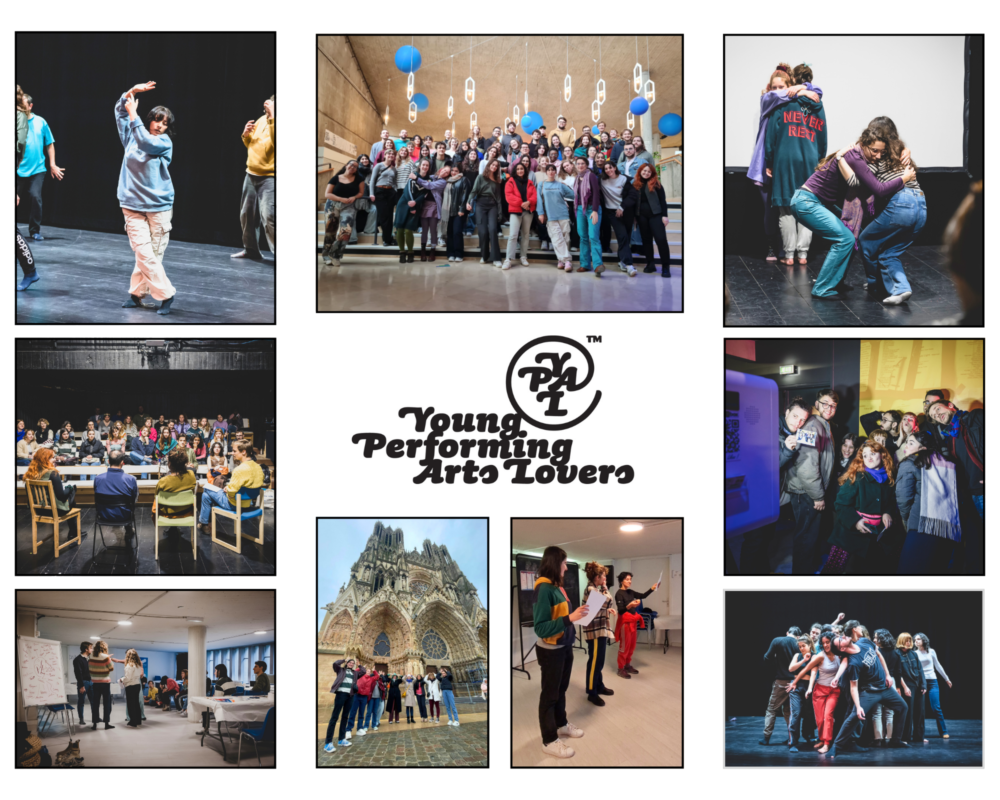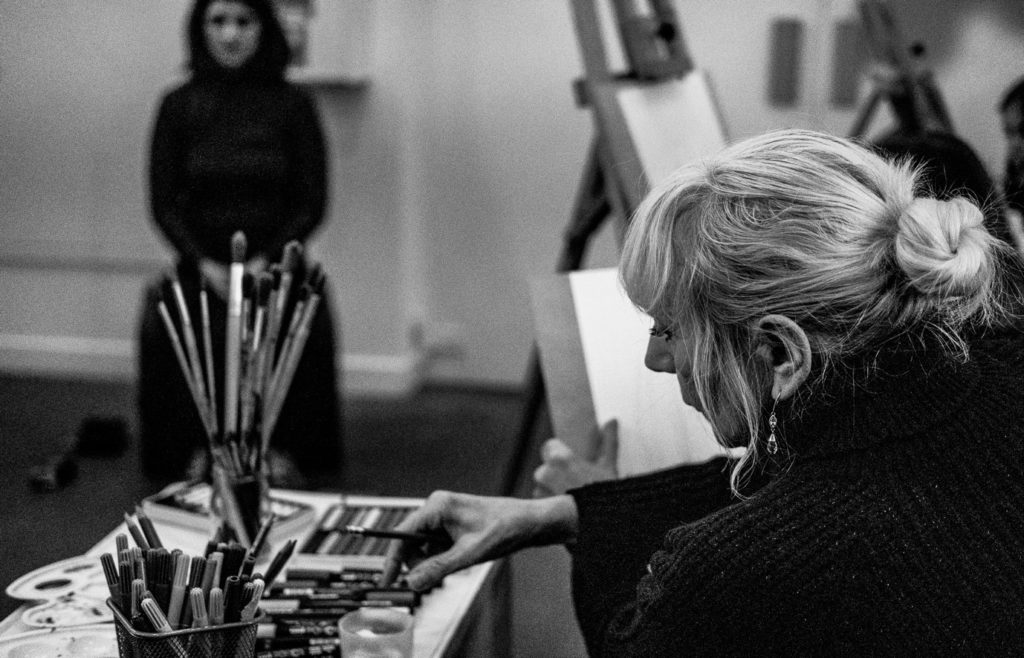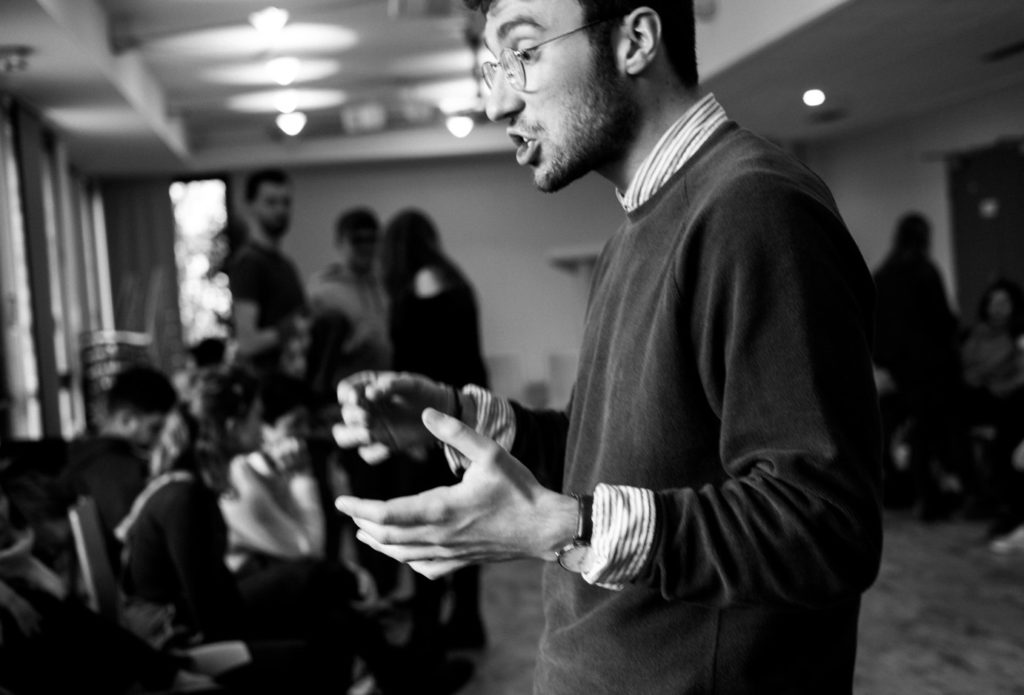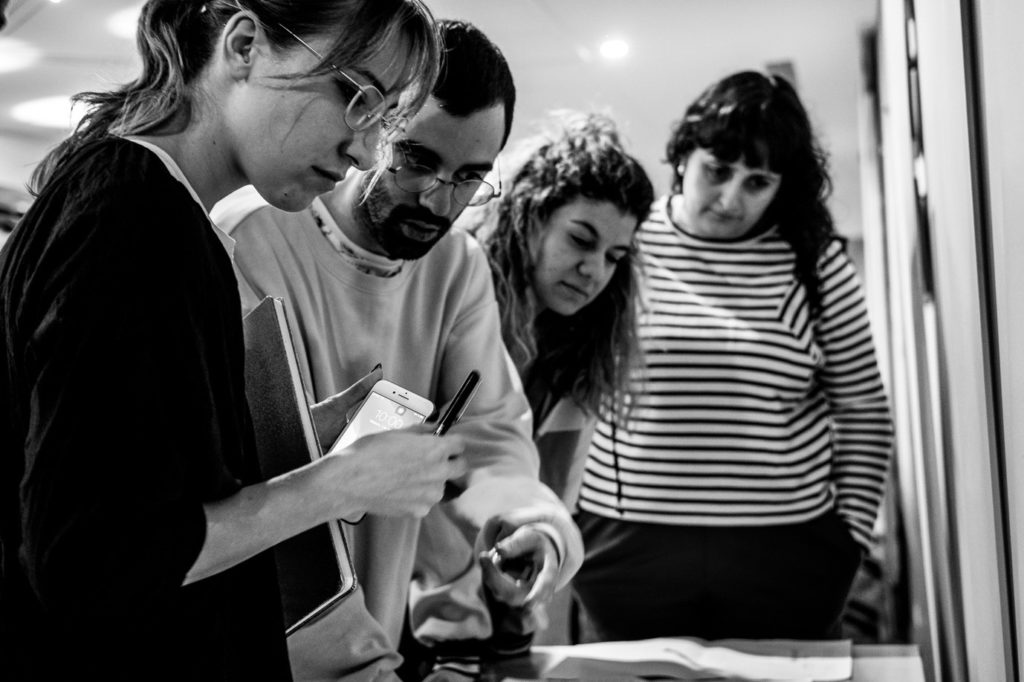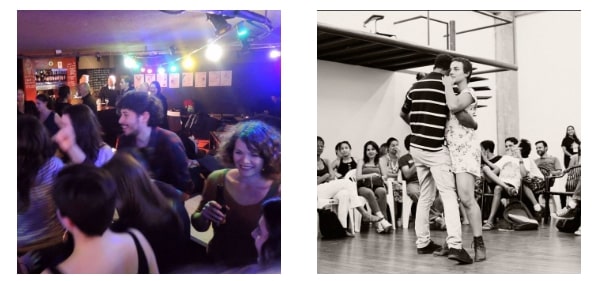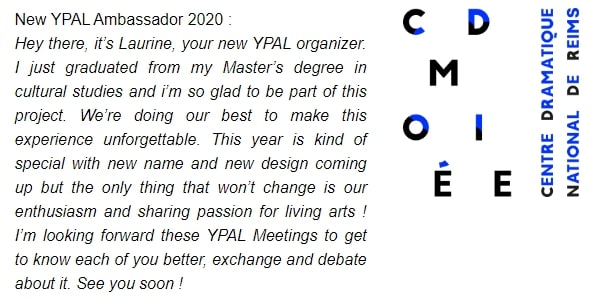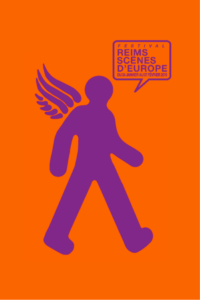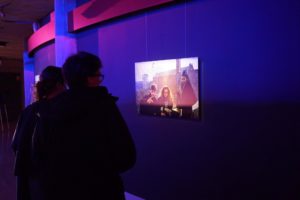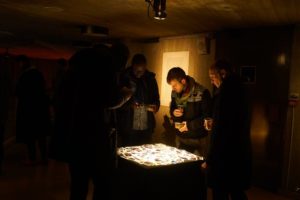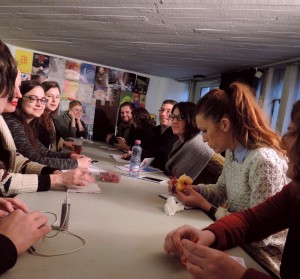
The region now called the Democratic Republic of Congo has been called many names throughout history. Each of the names marks a step in the colonisation and abuses it has experienced. The performance, written by the Congolese choreographer and director Faustin Linyekula tries to recount the horrific story of the atrocities committed to creating the Democratic Republic of the Congo and how this history impacts the country until today.
Congo kingdom, Congo Free State, Belgian Congo, Republic of Congo Léopoldville, Democratic Republic of the Congo, Republic of Zaire, Democratic Republic of the Congo
The piece starts at the Berlin conference and how arbitrarily the European powers split up the continent with the ideal of a free state in mind and “help” the African people. Leopold, the King of Belgium, acquired Congo and started to extract rubber from it. We see three black people stand in front of the audience: two men and one woman. The older of the two men starts naming all the men who sat at the table that split up Africa. With every name one can feel chills, the potent anger of the man’s voice does what simply reading history can’t, it makes us feel the horror these men sitting at the high table have caused. We can feel the anger and the pain of the Congolese people radiating from the man’s voice. While he is speaking, the younger man dances a Mongo dance, and the contortions show a culture known in the audience has ever witnessed before. With each finger twitch, the incredulity of the audience grows for the unrestrained beauty of the dance. His movements are in complete harmony with the story told by the other man, the pain coming from his movements as well.
The spectators get shaken out of their reverie once the woman starts her dance. It is symbolic of the rape of the African continent. She dances, and with each of her movements, anger, frustration, and emanating sadness can be felt. Hers is probably the most intense of all the parts of the play already saturated with negative emotions. The man reads the diary entries of Stanley describing the burning of villages, the rape of the women, and the practice of cutting off hands. The play portrays the grueling process the Lieutenant Léon Fievez underwent to create the railway running through the country, through the dense forests, from the cost to Leopoldville. During the eight years it took to complete, around half of the Congolese population was killed.
Why we ask ourselves, why did these horrors occur? The answer lies in the fact that Leopold wanted to enrich himself. He wanted a private colony at all costs, and Congo turned out to be the collateral damage to his pursuit.
The concept of democracy is present in the play as we can see that the process Congo took ended up in the “democratic” Republic of the Congo. Moreover, the atrocities committed by the European powers were atrocities committed by democracies. It shows us the hypocrisy of our culture as the colonizers believed they were aiding the other countries. While our countries actually abused the relationship, killing people, and extracting resources from it to gain more wealth all in the name of developing the less developed and help them reach a similar state as us.
